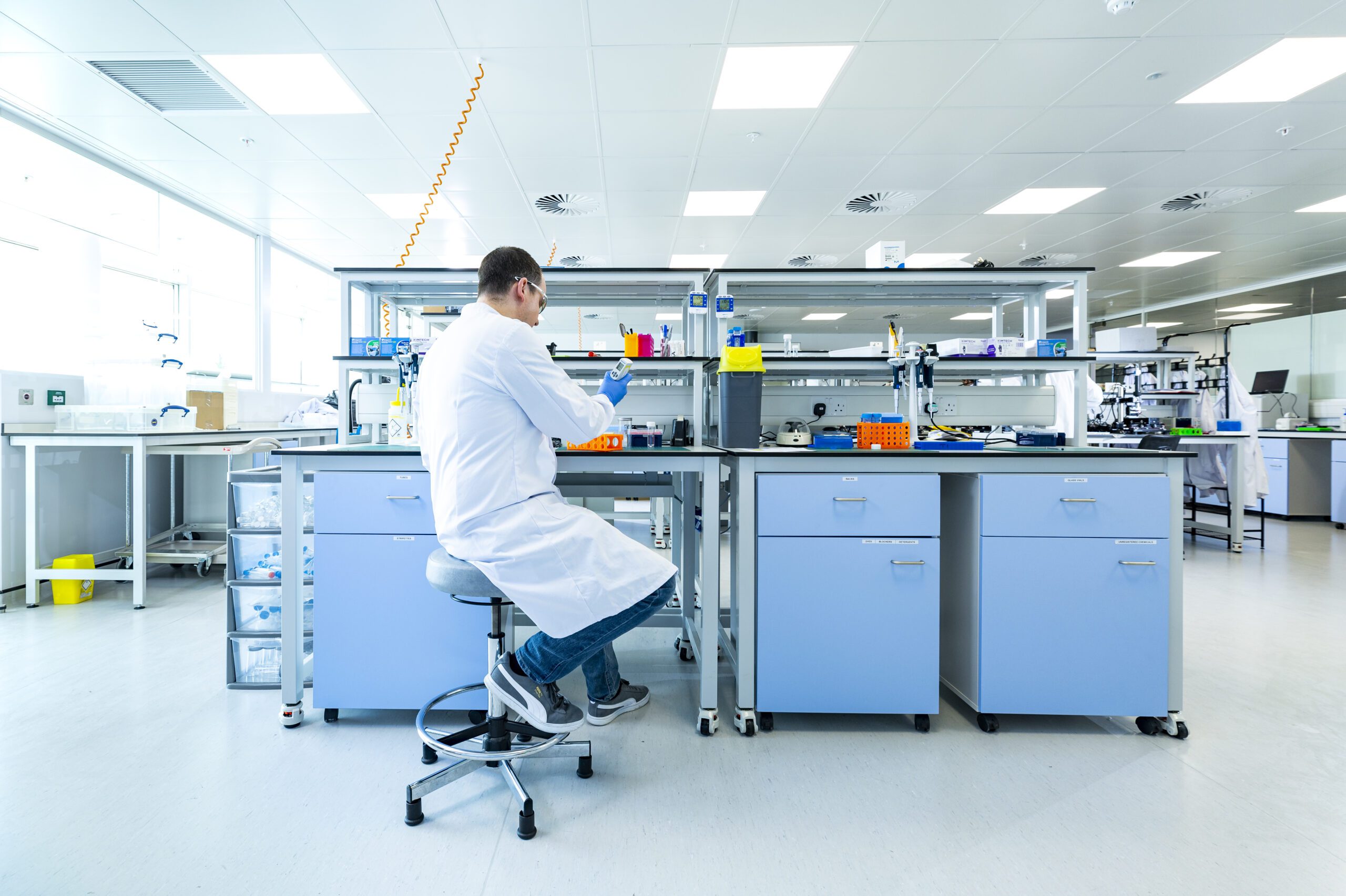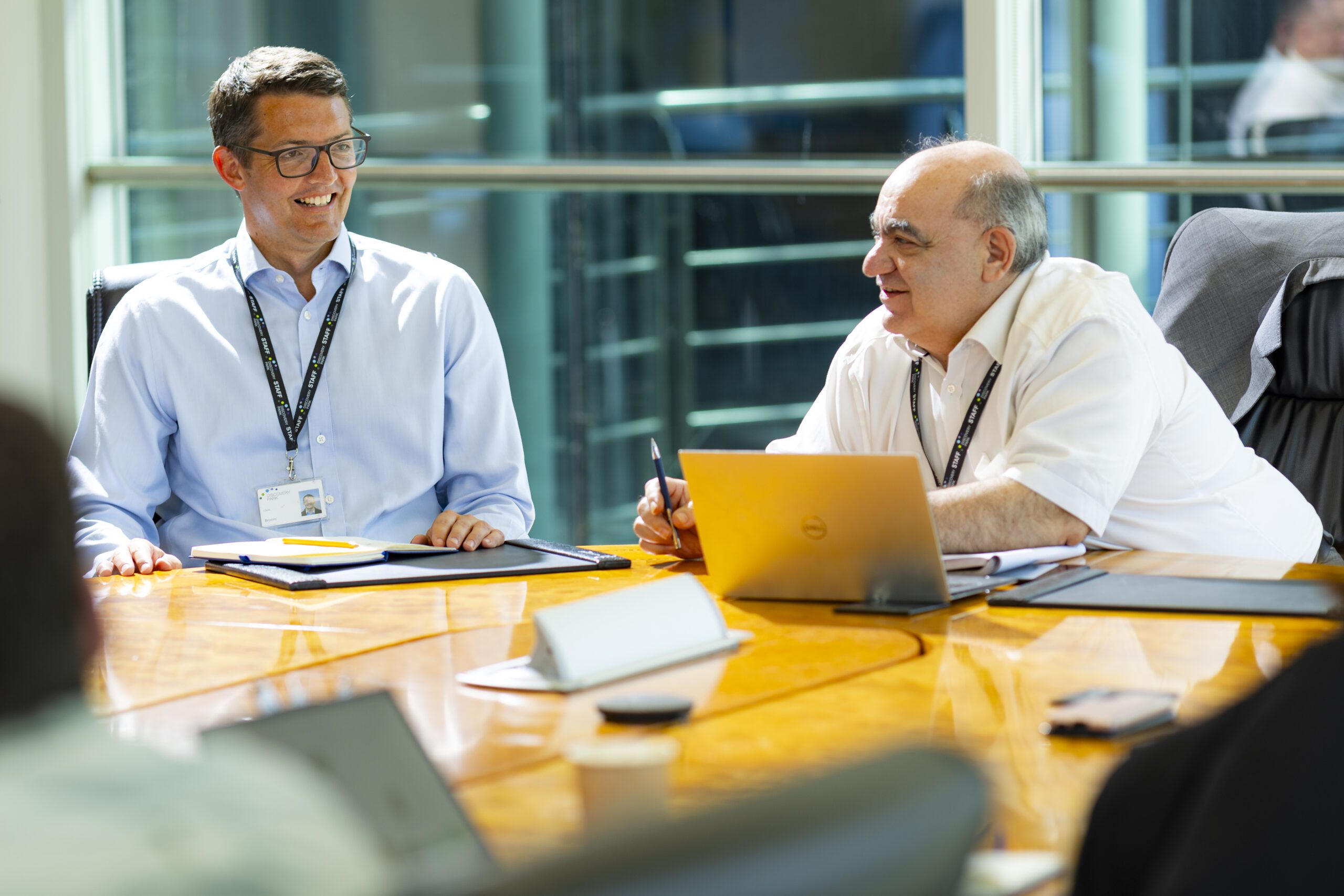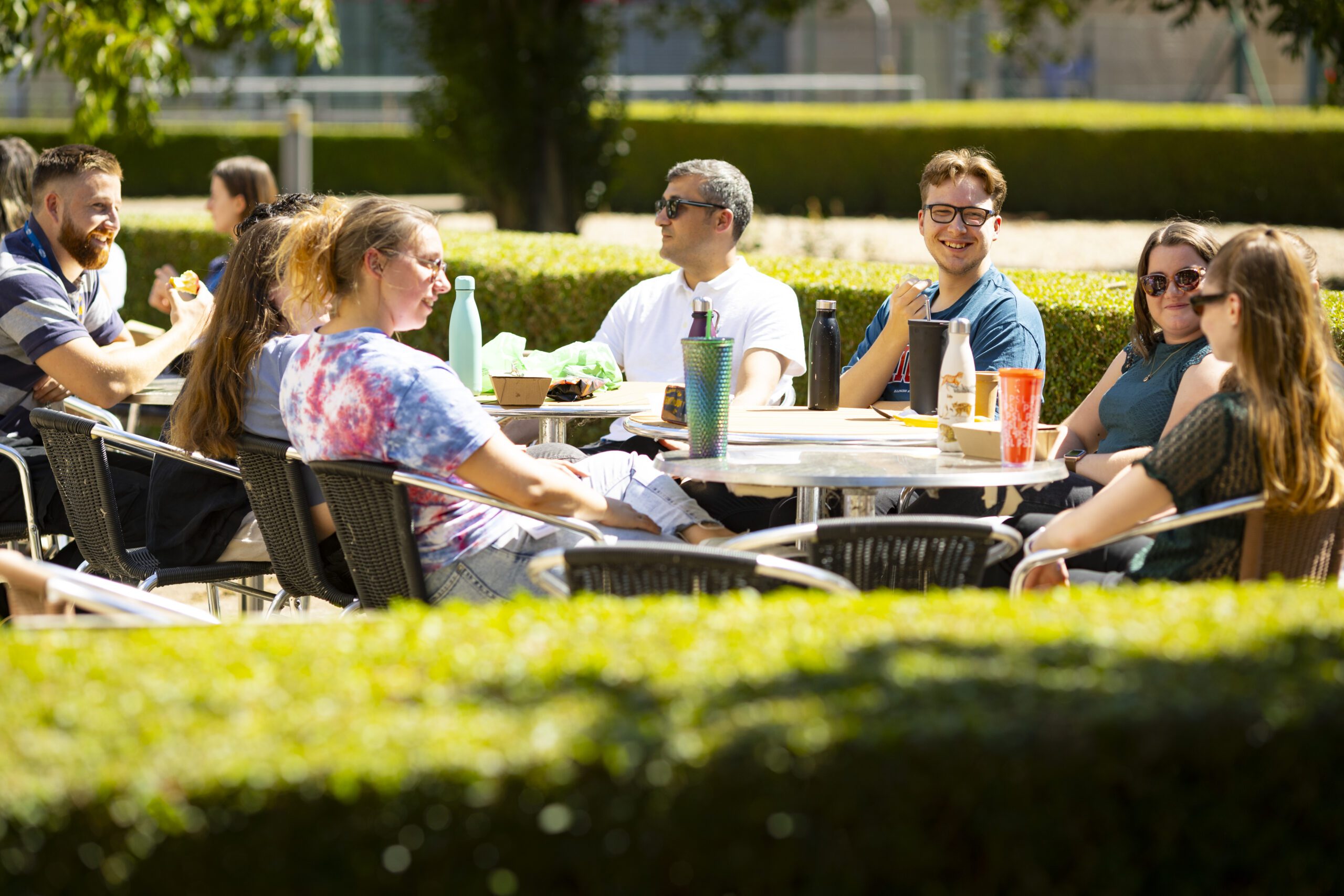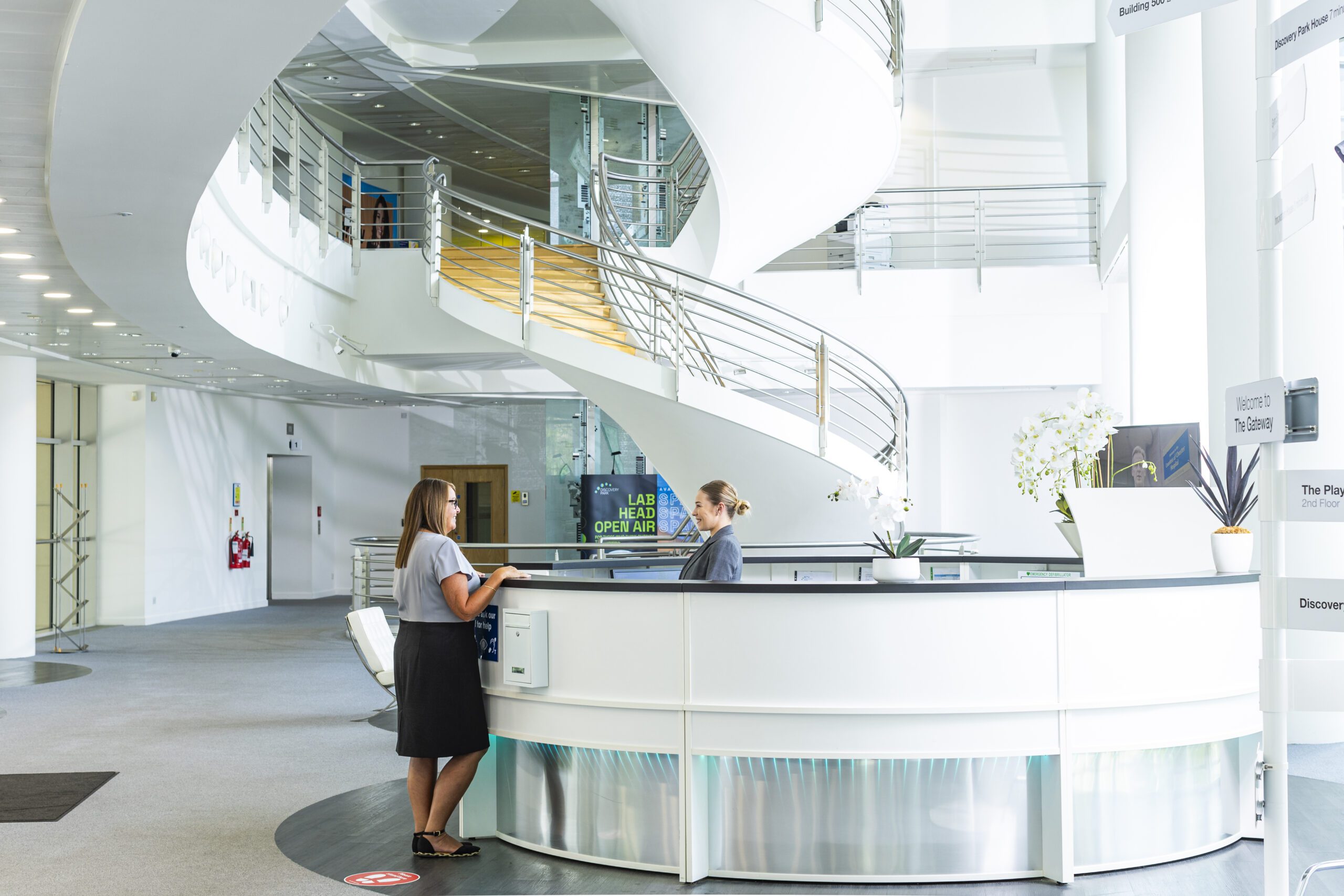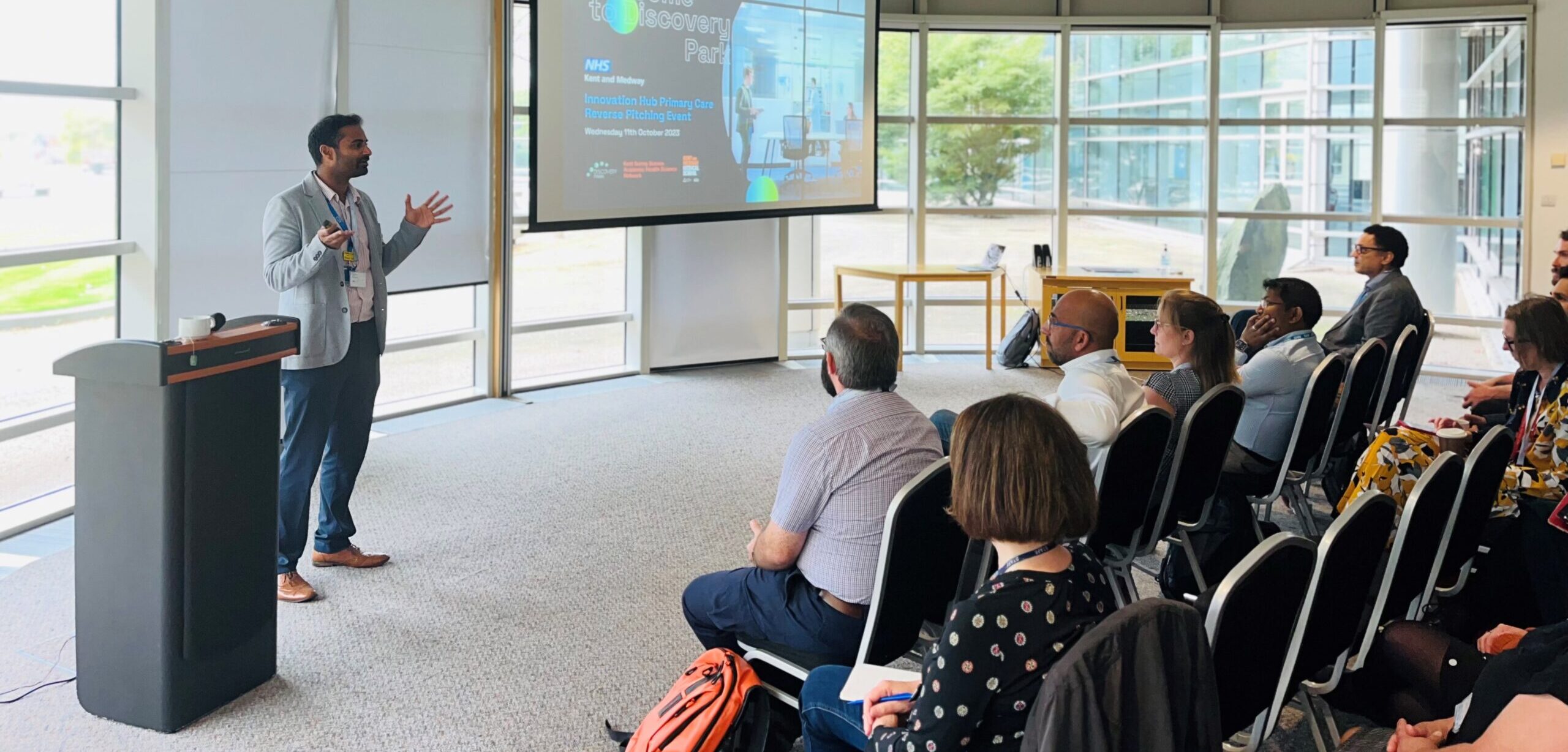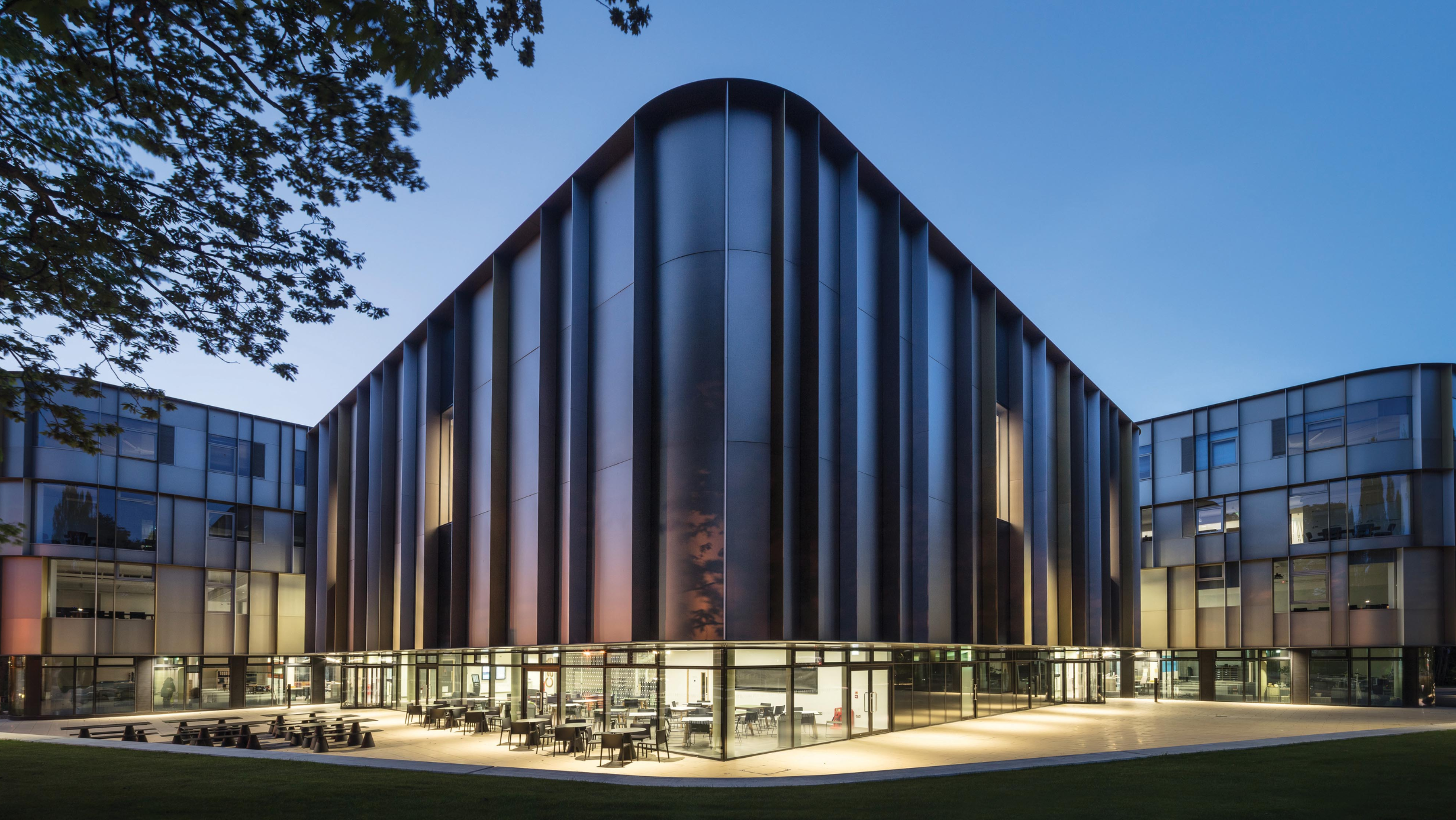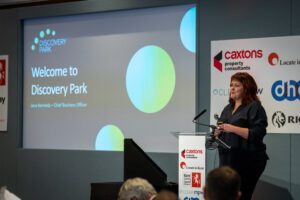An interview with Dr Mayur Vibhuti, Chief Clinical Information Officer NHS Kent & Medway Integrated Care Board (ICB), NHS England Clinical Entrepreneur Fellow, and Martin Carpenter, Chief Digital Transformation Officer NHS Kent & Medway ICB.
The NHS is considered by many to be one of the UK’s proudest achievements, but it is also under undeniable strain, with the current situation unsustainable for clinicians and patients alike. Opportunities lie in the integration of innovative solutions, both operational and clinical technologies, but this is often easier said than done.
At NHS Kent & Medway, Dr Mayur Vibhuti, Chief Clinical Information Officer, and Martin Carpenter, Chief Digital Transformation Officer, are working to find ways to integrate new technologies in a way that will transform the NHS to deliver for our current and future society. They recently hosted a reverse pitching event at Discovery Park to bring together key stakeholders and encourage cross-collaboration to generate meaningful solutions for real problems.
What was the idea behind the reverse pitching event and what were you aiming to achieve?
Mayur: Having been involved in setting up a primary care innovation hub in Medway before the Covid pandemic, we wanted to recreate something similar. Often solutions that are being developed by industry don’t match the immediate need. We want to bring together industry and academic partners with clinicians to develop solutions for current systemic problems that no one organisation could solve.
Martin: I’m pretty new to the NHS. I joined at the start of this year having worked in the private sector for most of my career. When I was on the panel at the Innovation Summit at Discovery Park, there was a question from the audience: ‘how does the NHS encourage innovation?’. In my experience, the answer is not very well! The NHS is not set up in a way that supports innovation as there are so many different organisations across the system. Start-ups don’t have the time or money to talk to multiple people within the system in order to find the right fit. The NHS therefore has to think differently around innovation.
The foundation of a good start-up is a good product market fit; if you don’t get that right you’ll fail at some point on your journey. The reverse pitch is designed to make sure the product market fit is right using real world NHS problems that need fixing, not just an academic exercise.
Mayur: The reverse pitching event stemmed from a desire to bring all the relevant people together around one subject matter using a problem-based methodology. When Martin met Jane Kennedy, Chief Business Officer at Discovery Park, at their Innovation Summit earlier this year, it was clear that our ambitions aligned with those of the team and companies at Discovery Park and it all came together.
We took three wicked problems – how to diagnose cancer faster using existing systems; how to improve the logistics around long term care management; and how to improve preventative care – and put them in front of an audience of academia and industry. These may not seem like super complicated problems outside of the NHS, but within the organisation there isn’t the relevant expertise or the money to solve them. We knew we wouldn’t get solutions on the day, but we wanted to make connections and focus minds on the pressing issues for the NHS and how their solutions might align.
How was the event? What key themes emerged from the day?
Martin: As the first event we’ve organised for this purpose, we’re really pleased with the result. It was great to see over 50 people from a vast array of backgrounds including primary care, academia, industry and VCs all in the same room and create a buzz around the aims of our network.
One key theme that emerged was around workflow and making it easier for people in the NHS to do their jobs. Current systems require high levels of training to make sure jobs can be done rather than using technology to drive process adherence and standardisation. There is a clear opportunity here that is still to be realised.
Mayur: This was a bit of a soft launch to see what would happen, but we’re really pleased with how it turned out. We saw lots of networking which is a key goal for us – bringing together people with aligned purposes who should have met but hadn’t yet. Health care is complex and we’re unlikely to get linear solutions but by making the introductions and seeing opportunities to facilitate collaboration we’re aiming to demystify both sides.
What are your plans for future events?
Mayur: We’re not planning to have a strict rule as to what the innovation hub is, we want to be agile and go where the energy is. We’re aiming to provide a forum for people with a shared purpose but going about it in different ways. This will be the golden thread connecting all our activities coming up.
Martin: More of the same really! We want to get more people involved who are at the right stage for the NHS, with sufficient product development to have a viable solution, but not so far developed that it’s too late to tailor their offering to ensure that alignment.
What are the current hold ups for industry/NHS collaboration?
Martin: The NHS has a way of working which isn’t suitable to encourage a start-up ecosystem – and the challenge is for the NHS to adapt not the other way round. We need to change the way of working and thinking to encourage risk taking and agile thinking. This will need to create slick internal processes that allow quick decision making as without that start-ups will fail.
Mayur: The best analogy I’ve heard recently is that people think the NHS is a whale but it’s actually a shoal of fish – all moving in the same direction but thousands of different organisations with their own goals and processes. This doesn’t make it easy for start-ups to interact with. And change isn’t easy as people within the NHS are too busy delivering their own goals to take a broader overview of the situation. There are a cohort of people who want to make change, but it is too difficult and they are too time poor to do so. We need to introduce a space to make the process easier.
What are the benefits of regional networks to drive this collaboration?
Mayur: Regional networks will be key to aligning purpose and delivering a real impact. We need to build an innovation pathway that enables ideas or products to be tested at a local level to measure impact, then expanded more widely across the county, and the country once we’ve shown they work. We don’t have a postcode to national pathway, but if we got the postcode to county pathway right, we could then recreate this elsewhere.
Martin: These regional centres are important for a number of reasons. The primary goal of the Integrated Care Boards is to reduce healthcare inequalities, which are a major concern. For example, there is a difference in life expectancy for men of over four years between Thanet and Maidstone. It is well known that economic prosperity correlates with health outcomes, so if we can stimulate an innovation ecosystem in Kent & Medway, we will not only find solutions for major healthcare challenges but also build a more prosperous, skilled workforce, and generate healthier outcomes. Bringing innovation into the mainstream is therefore vital to reduce these inequalities and improve outcomes.
Discovery Park is an amazing resource within Kent & Medway with innovative companies and high-tech lab space on our doorstep, alongside several leading universities. We have a fantastic opportunity to create a centre of excellence in life science and economic prosperity here by working together.
What more can we do to build on this?
Mayur: As a community we need to make a concerted effort to step outside of our organisational position on certain things to enable innovation. We need to come together, try different things and support people with the time they need to think differently. Risk and governance can kill innovation in public services, but with more collaboration this doesn’t have to be the case.
Martin: We really welcome feedback on how to improve our approach so please get in contact if you have any ideas that could help to deliver better outcomes for patients and create economic vibrancy in Kent.
To get involved or learn more contact info@discovery-park.co.uk.
Martin is Chief Digital Transformation Officer for NHS Kent & Medway ICB, joining the NHS in January 2023. Martin’s experience covers Pharma, a Genomics startup, UK Chief Information Officer (CIO) for Optum, tele-radiology, Social Housing and outsourcing. He is a Certified Healthcare CIO, Fellow of the Institute of Directors and has specific expertise in organisational transformation and Cyber.
Dr Mayur Vibhuti is a Fellow of the Royal College of General Practitioners with a varied experience of medical education, innovation, and transformation roles in primary care. He is currently Chief Clinical Information Officer for NHS Kent & Medway ICB and NHS England Workforce Training & Education directorate GP Associate Dean clinical lead for NHS Kent & Medway Training Hubs. He is also an NHS England Clinical Entrepreneur Fellow & a Visiting Reader in Medical Leadership at Canterbury Christ Church University, Kent.
He has run innovative training programmes for GPs & Multi-professionals working in primary care and set up a pan system innovation hub to accelerate adoption of new technologies.

